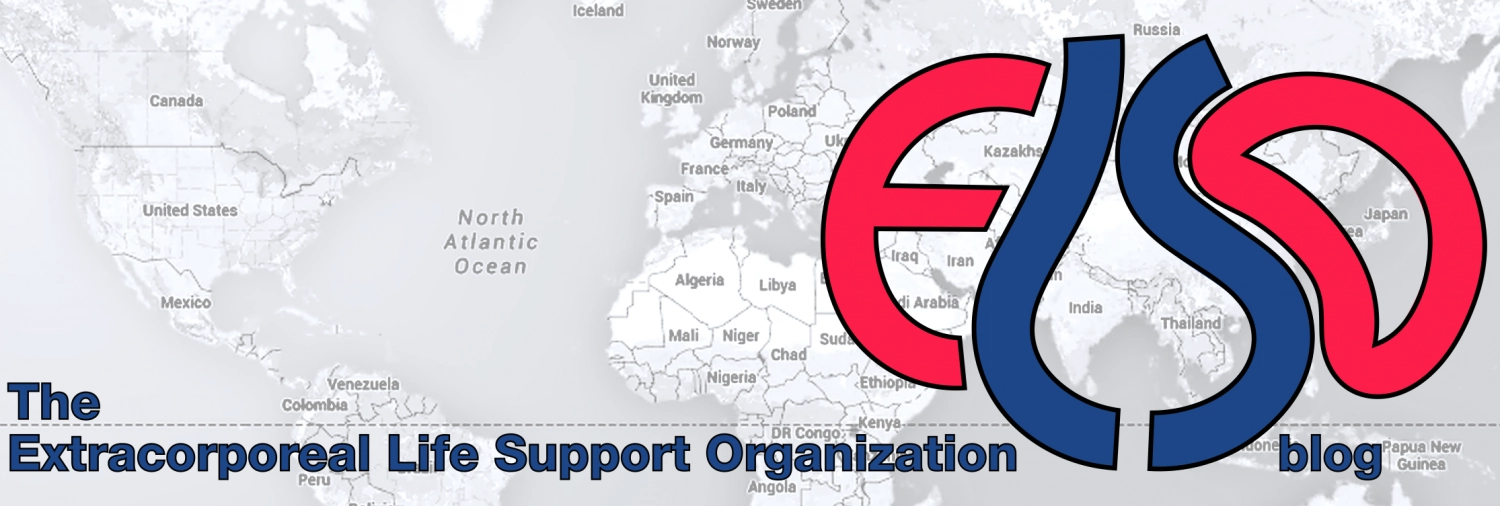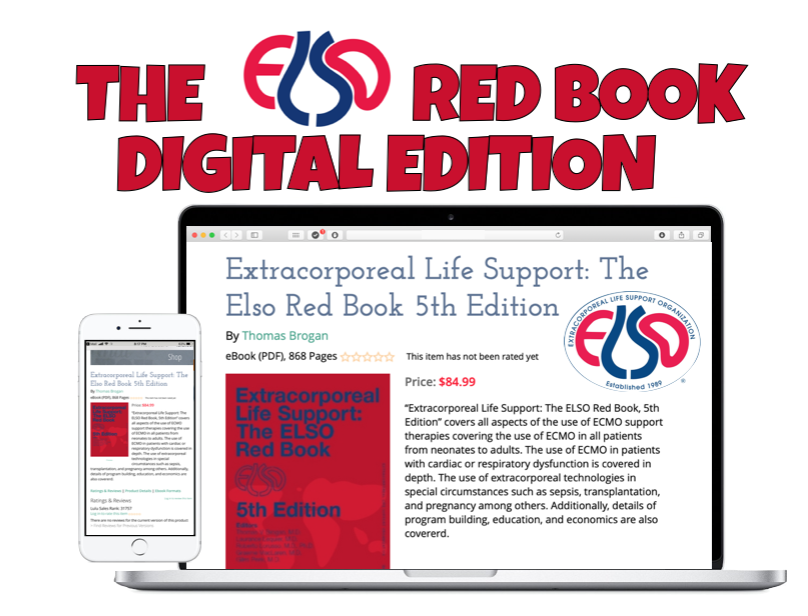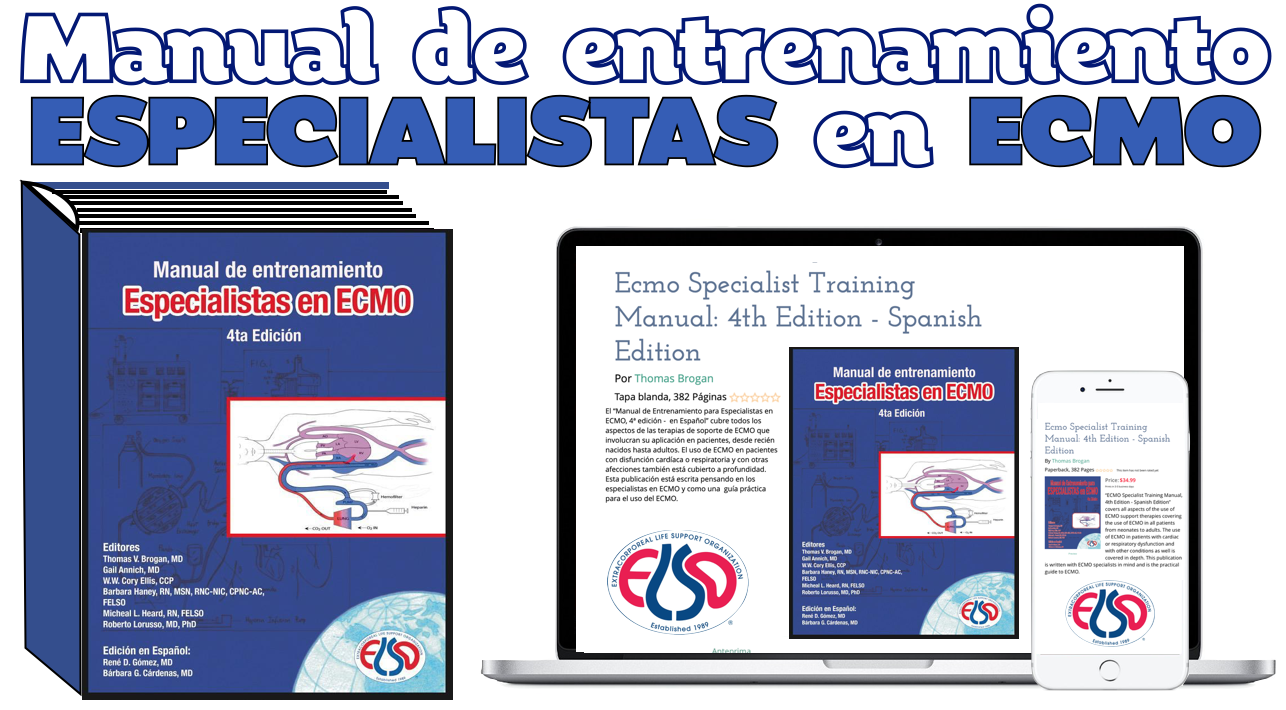
Ethics of ECLS

ECMO, lifesaving but associated with several complications that may contribute to reduced survival: the equipe caring for neonates on extracorporeal support, at high mortality risk, must be deeply prepared to deal with complex clinical scenarios, but also with complex ethical issues associated with ECLS. The team must be trained to handle unsuccessful runs, focusing on high quality end of life care. In this open access paper, authors compare & contrast two ethical frameworks, principlism & personalism to enhance a broader understanding of cultural differences in applied ethics, potentially useful to healthcare professionals practicing in an increasingly multicultural & diverse patient mix.
Di Nardo M, Dalle Ore A, Testa G, Annich G, Piervincenzi E, Zampini G, Bottari G, Cecchetti C, Amodeo A, Lorusso R, Del Sorbo L, Kirsch R. Principlism and Personalism. Comparing Two Ethical Models Applied Clinically in Neonates Undergoing Extracorporeal Membrane Oxygenation Support. Front Pediatr. 2019 Jul 30;7:312. link
Practice & ethics in managing adult patients on VV ECMO: a survey to characterize the ethical attitudes & opinions of 539 physicians across 39 countries and 6 continents. The study highlights important findings including key factors (age, coexisting organ failures, prolonged mechanical ventilation) limiting ECLS initiation in severe ARDS, and key considerations influencing withdrawal decision (comorbidities, patient wishes, etiology of respiratory failure). The study also identifies factors associated with both increased/decreased odds of withdrawal. Although the decision to implement veno-venous ECMO was reported as influenced by factors associated with poor prognosis, the decision whether to continue or discontinue extracorporeal support was strongly influenced by known/unknown patient’s or surrogate’s wishes, level of consciousness, perceived “futility”. Low rates of incorporating shared decision-making, including involvement of ECMO patients and family, was reported.
Abrams D, Pham T, Burns KEA, Combes A, Curtis JR, Mueller T, Prager KM, Serra A, Slutsky A, Brodie D, Schmidt M; International ECMO Network (ECMONet). Practice Patterns and Ethical Considerations in the Management of Venovenous Extracorporeal Membrane Oxygenation Patients: An International Survey. Crit Care Med. 2019 Oct;47(10):1346-1355. link

ECMO, more is more? a complex, costly & resource-intensive but promising intervention, effective in supporting critical patients with severe cardiac and/or pulmonary failure. Advancements have made ECLS safer & easier, and its use has exponentially grown, with economic/technical challenges to health system. Choosing & spending wisely is mandatory to to ensure that the best possible outcomes are being obtained, continually evaluating data from providers of high-cost/resource-intensive procedures, and developing evidence-based decision: high-quality registries, such the ELSO Registry may be helpful. Given the potential related risks it is critical engaging patients and their families in shared-decision making. A profound editorial.
Fan E, Karagiannidis C. Less is More: not (always) simple-the case of extracorporeal devices in critical care. Intensive Care Med. 2019 Oct;45(10):1451-1453. link
It is likely only a matter of time before data will be collected that incontrovertibly show ECPR to be superior to conventional CPR in select patients; physicians need to make evaluate who would likely benefit from extracorporeal CPR and decide with patients and families if this is something they would want; history of CPR suggests the importance of defining the limits of any kind of resuscitation: ECPR also pushes us to better define these limits.
Brauner DJ, Zimmermann CJ. AMA J Ethics. 2019 May 1;21(5):E443-449. Will We Code for Default ECMO? link
with this reply: Clarifying the scope of a Do-Not ECMO order and predicting some of the challenges likely to arise when incorporating DNE orders into hospital code status systems.
Blythe JA, Wieten SE, Batten JN. Response to “Will We Code for Default ECMO?”: Clarifying the Scope of Do-Not-ECMO Orders. AMA J Ethics. 2019 Oct 1;21(10):E926-929. link
ECMO support: unquestionably is saving lives but sometimes is a bridge to nowhere, raising ethical questions and legal constraints about our traditional definitions of life & death, medical futility and right/duty to withdraw extracorporeal life support to preserve dignity patients deserve at the end of life.
Mulaikal TA, Nakagawa S, Prager KM. Extracorporeal Membrane Oxygenation Bridge to No Recovery. Circulation. 2019 Jan 22;139(4):428-430. Open access link
Achieving value in highly complex acute care: applying a value (outcomes & cost) analysis to extracorporeal life support to define guidelines for ECLS delivery, exploring opportunities for more efficient care, based on the ELSO Registry data, peer reviewed literature, opinions from experienced clinicians; some of the key points:
reducing ECLS demands on ICU resources
discuss in advance/early about end of life care: outcomes need to be consistent with patient goals & preferences
properly select candidates
high ECMO volume could improve outcomes and also allows center to take advantage from economies of scale & other efficiencies.
A case study Nurok M, Warsh J, Dong E, Lopez J, Kharabi M, Kaplan RS. Achieving Value in Highly Complex Acute Care: Lessons from the Delivery of Extra Corporeal Life Support. NEJM Catalyst (October 31, 2019) link
Ethics and etracorporeal life support, some reflections about “bridge to nowhere” situation, withdrawal of sustaining treatments, challenges of neurological and cardio-circulatory determination of death on ECLS.
Abrams D, Curtis JR, Prager KM, Garan AR, Hastie J, Brodie D. Ethical Considerations for Mechanical Support. Anesthesiol Clin. 2019 Dec;37(4):661-673. link

Long-term survival, post-traumatic stress disorder, quality of life after ECMO support: a large single-centre retrospective cohort study surveying post ECLS patients, reporting good longterm survival rates, but a high occurrence of reduced QoL & PTSD, and reaffirming the need for long-term follow-up & rehabilitation in this population. The observed cohort experienced a decrease in QoL in all domains, appearing as significantly associated with a high risk for PTSD. RRT & duration of extracorporeal support significantly associated with increased mortality but not with QoL; no difference in QoL reported between different underlying conditions, despite different mortality.
Harley O, Reynolds C, Nair P, Buscher H. Long-Term Survival, Posttraumatic Stress, and Quality of Life post Extracorporeal Membrane Oxygenation. ASAIO J. 2019 Nov 20. link
Neurocritical care & neuro-outcomes
Neurocritical care for ECMO patients: management of neurologic injuries potentially related to extracorporeal support is imperative: global hypoxic-ischemic brain injury, ischemic stroke, intracranial hemorrhage, cerebral air embolism, cerebral edema & acute elevation of ICP, seizures, brain death. Here, a review on these complications and on current science & best practices for guiding neuro-assessment/neuro-management in this population: NIRS, TCD, neuroimaging, plasma biomarkers, EEG and ICP monitoring.
Cho SM, Farrokh S, Whitman G1, Bleck TP2, Geocadin RG. Neurocritical Care for Extracorporeal Membrane Oxygenation Patients. Crit Care Med. 2019 Dec;47(12):1773-1781. link

Neuro-outcomes in neonatal & pediatric ECMO patients: according to the result of this pilot study, long-term developmental delay is common; the younger the age at the time of extracorporeal support, the higher the chances of impaired outcome; significant abnormalities on brain MRIs correlated with delay on follow-up. Authors suggest, for ECMO survivors, standardized neuro-psychologic testing & post ECLS imaging as standard of care.
Dhar AV, Scott S, Anton-Martin P, Tweed J, Morris MA, Modem V, Raman L, Golla S. Neurodevelopmental Outcomes in Extracorporeal Membrane Oxygenation Patients: A Pilot Study. ASAIO J. 2019 Aug 6. link

Longtime neuro-outcome of ECMO supported & non ECMO ARDS survivors: besides well-known complications like cerebral bleeding and ischemic stroke, more subtle injuries, not so severe, but potentially impacting on quality of life & psychological health, as impairing activities of daily living and work. These lesions have been detected by a thorough clinical exam, some seems directly related to ECLS, and, according to the authors, need to be considered when implementing extracorporeal support.
Harnisch LO, Riech S, Mueller M, Gramueller V, Quintel M, Moerer O. Longtime Neurologic Outcome of Extracorporeal Membrane Oxygenation and Non Extracorporeal Membrane Oxygenation Acute Respiratory Distress Syndrome Survivors. J Clin Med. 2019 Jul 12;8(7). pii: E1020. Open access link
Confirming Brain Death on extracorporeal support

Confirming Brain Death on veno-arterial ECMO: development & implementation of a protocol for permorming a safe & reliable apnea test on ECLS incorporating regular blood sampling of both righ radial & post-membrane lung, with a gradual reduction in fresh gas flow to ensure oxygenation. Authors also report their preliminary experience.
Ihle JF, Burrell AJC, Philpot SJ, Pilcher DV1, Murphy DA, Pellegrino VA. A Protocol that Mandates Postoxygenator and Arterial Blood Gases to Confirm Brain Death on Venoarterial Extracorporeal Membrane Oxygenation. ASAIO J. 2019 Oct 11. link
How dow you confirm brain death on veno-arterial ECMO support? here a summary about specific challenges of BD determination on ECLS.
Bein T, Müller T, Citerio G. Determination of brain death under extracorporeal life support. Intensive Care Med. 2019 Mar;45(3):364-366. Open access link
…& some related considerations about simultaneous distal arterial & post-Membrane Lung blood sampling (same group of previous ASAIO study).
Ihle J, Burrell A. Confirmation of brain death on VA-ECMO should mandate simultaneous distal arterial and post-oxygenator blood gas sampling. Intensive Care Med. 2019 Aug;45(8):1165-1166. link
How to perform apnea test, a key component of the declaration of brain death, on ECMO support? In this case report, an alternative strategy, the addition of a controlled volume of CO2 into the gas inflow line of the membrane lung, to increase PaCO2 in patients on ECLS, avoiding the need to decrease sweep gas flow, potentially compromizing O2 delivery.
Beam WB, Scott P, Wijdicks EFM. The Physiology of the Apnea Test for Brain Death Determination in ECMO: Arguments for Blending Carbon Dioxide. Neurocrit Care. 2019 Dec;31(3):567-572. link
Diagnosis of death according to neurological criteria in adults on #ECMO support: why is ECLS a special circumstance? impact upon brainstem & apnea testing, and background & process of development of a UK nationally accepted guideline.
Meadows CIS, Toolan M, Slack A, Newman S, Ostermann M, Camporota L, Gardiner D, Webb S, Barker J, Vuylsteke A, Harvey C, Ledot S, Scott I, Barrett NA on behalf of the NHS England ‘‘ECMO in adults with severe respiratory failure’’ commissioned service. Diagnosis of Death Using Neurological Criteria in Adult Patients on Extracorporeal Membrane Oxygenation: Development of UK Guidance. JICS 2019 March 0(0) 1–5. Open access link
Neurological determination of death & challenges of apnea testing in patients dependent on ECMO support maintaining hemodynamic stability & maximizing oxygenation while adjusting gas flow to reduce excessive CO2 removal, a review.
Lie SA, Hwang NC. Challenges of Brain Death and Apnea Testing in Adult Patients on Extracorporeal Membrane Oxygenation-A Review. J Cardiothorac Vasc Anesth. 2019 Aug;33(8):2266-2272. link

Transcranial doppler on veno-arterial ECMO support, feasible/reliable to diagnose/confirm brain death? open access discussion…
TCD waveform patterns: interpretable even in patients on VA ECMO with no pulsatile arterial tracings?? If pulsatility is preserved, reverse flow can be a powerful finding to help confirm BD, while in the case of nonpulsatile blood flow, developing a loss of spectral Doppler signal in the MCA territory is indicative of BD: a comment
Berthoud V, Ellouze O, Constandache T, Martin A, Bouhemad B, Guinot PG. Transcranial Doppler Waveform Patterns in Nonpulsatile Blood Flow Under Venoarterial Extracorporeal Membrane Oxygenation for Brain Death Diagnosis. ASAIO J. 2019 Jun 6. link
referring to the (2018) retrospective single-center study aiming to investigate the feasibility of TCD in cerebral circulatory arrest diagnosis on VA #ECMO; findings suggest that TransCranial Doppler seems a reliable instrumental test regarding BD confirmation on extracorporeal support, provided that a pulsatile flow is maintained (native cardiac function, as properly assessed, or IABP), but do not allow to conclude whether TCD retains its validity if continuous, nonpulsatile arterial flow.
Marinoni M, Cianchi G, Trapani S, Migliaccio ML, Bonizzoli M, Gucci L, Cramaro A, Gallerini A, Picciafuochi F, Valente S, Peris A. Retrospective Analysis of Transcranial Doppler Patterns in Veno-Arterial Extracorporeal Membrane Oxygenation Patients: Feasibility of Cerebral Circulatory Arrest Diagnosis. ASAIO J. 2018 Mar/Apr;64(2):175-182. link
and here the authors’ reply, stating signal disappearance during a TCD continuous monitoring strongly suggests evolution to a condition of BD and prompts for further evaluations, but also recommending considerations about the wide international variability in diagnosing brain death.
Marinoni M1, Trapani S, Cianchi G. Transcranial Doppler Confirming of Brain Death in Patients Treated with Venoarterial Extracorporeal Membrane Oxygenation. ASAIO J. 2019 Jun 6. link
Determination of the cause of death is mandatory in ECLS patients, considering the high incidence of unrecognized events, several leading to death, often not diagnosed ante-mortem. The ECMO team need to be aware of the high rate of major complications/likely presence of hidden adverse events, remaining continuously alert for patient evaluation, particularly with advanced imaging modalities of the brain. Autopsy, and modernization of post-mortem investigations, may enhance & clarify effects of extracorporeal support in critically ills.
What you do not know, you do not recognize…and you do not improve future patient care…particularly in extracorporeal life support (ECLS) patients. J Thorac Dis. 2019 Sep;11(Suppl 15):S1930-S1934. Lorusso R, Corradi D. Open access link
The editorial is a comment to this analysis, reporting major discrepancies between pre & postmortem diagnoses in patients who underwent ECMO support, underscoring difficulties in clinically diagnosing events on ECLS and the need for enhanced surveillance/better diagnostic techniques.
Jia D, Neo R, Lim E, Seng TC, MacLaren G, Ramanathan K. Autopsy and clinical discrepancies in patients undergoing extracorporeal membrane oxygenation: a case series. Cardiovasc Pathol. 2019 Jul – Aug;41:24-28. link



